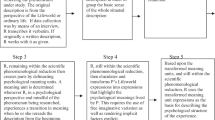Abstract
In the Indian tradition, psychology is the study of the person (jiva). The person is a composite of consciousness, mind and body, a unique blend of thought, passion and action. Consciousness is perceived as changeless and the permanent base of all knowledge and awareness. Mind is the interfacing instrumentality, a necessary link between consciousness and the body. The body is the physical base, and the frame that constrains and moulds consciousness reflected in the mind of the person. The person, in the existential condition, is seen as conditioned, her consciousness is clouded and consequently unable to know the truth and realize her full potential. This is considered to be a state of ignorance and suffering that needs to be overcome. The goal of Indian Psychology is to understand the human condition and to explore ways to elevate it to higher levels of being, to clear the clouds of ignorance, and to enable the person to attain a state of bliss where the truth is known and the person becomes perfect. Three ways of achieving such a state are suggested: work (karma marga), worship (bhakti marga), and wisdom (jnana marga), which appear to cater to the three basic aspects of the mind: volition, emotion and cognition. In essence, each of these is a distinct way of deconstructing the ego, which is believed to be the main obstacle to transcending existential limitations. The applications of IP include (1) holistic understanding of human nature, (2) exploring the extended spectrum of the human condition, (3) exploiting the hidden potentials for the common good, and (4) cultivating altruism in the person and conflict-free conditions in society.
Similar content being viewed by others
References
Alvares, C., & Faruqi, S. S. (2012). Decolonising the university. Pulau Pinang: Penerbit Universiti Sains Malaysia.
Cornelissen, R. M. M., Misra, G., & Varma, S. (Eds.). (2011). Foundations of Indian psychology, vol. 2. Delhi: Pearson.
Husserl, E. (1960). Cartesian Meditations: An introduction to phenomenology. Dordrecht: Kluwer. Cairns, D., trans, original 1931.
James, W. (1914). Varieties of religious experience: A study in human nature. New York: Longmans, Green & Co. Original work published in 1902.
Joshi, K., & Cornelissen, M. (Eds.). (2004). Consciousness, Indian psychology and yoga. New Delhi: Center for Studies in Civilizations.
Misra, G. (2011). Handbook of psychology in India. New Delhi: Oxford University Press.
Myers, F.W.H. (1915/1903). Human personality and its survival of bodily death (Vol.1). New York: Longmans, Green.
Rao, K. R., & Marwaha, S. B. (Eds.). (2005). Towards a spiritual psychology. New Delhi: Samvad.
Rao, K. R., Paranjpe, A. C., & Dalal, A. K. (Eds.). (2008). Handbook of Indian psychology. New Delhi: Foundation Books (Cambridge University Press).
Rao, K. R. (2011a). Cognitive anomalies, consciousness and yoga. New Delhi: Matrix Publishers.
Rao, K. R. (2011b). Gandhi and applied spirituality. New Delhi: Indian Council of Philosophical Research and Matrix Publishers.
Singh, S. P., & Mukesh, Y. (2010). Yoga: From confusion to clarity (Vol. I). Foundation of yoga. New Delhi: Standard Publishers (India).
Sinha, J. (1958). Indian Psychology: Cognition (Vol. I). Calcutta: Sinha Publishing House.
Sinha, J. (1961). Indian psychology: Emotion and will, vol II. Calcutta: Sinha Publishing House.
Varela, F. J., Thompson, E. A., & Rosch, E. (1993). The embodied mind: Cognitive science and human experience. MA: (Cambridge MIT Press).
Velmans, M. (2000/2009). Understanding consciousness. London: Routledge.
Author information
Authors and Affiliations
Corresponding author
Additional information
K.R. Rao’s Invited Address given at XXXth International Congress of Psychology 2012, Cape Town, South Africa.




